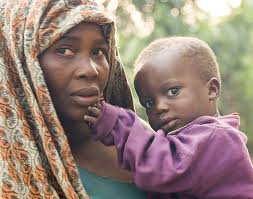Aid group Save the Children is highlighting progress in combating child mortality in many developing nations in Africa, while also warning of the need to address inequalities to help children have a better chance of surviving.
The group issued a new report Wednesday saying the world has made "remarkable" improvements in child health, but that kids in poor and rural areas, as well as girls and infants, remain more at risk of dying.
Its profile of Ethiopia spotlights the divide. The country has cut child mortality by 67 percent since the United Nations set a target to cut child moratlity by that rate worldwide by 2015. However, Save the Children says kids in the poorest 40 percent of Ethiopia's population are twice as likely to die as those in the top 10 percent. Girls and children living in rural areas are also more likely to die than their counterparts.
The report urges governments to focus on preventing infant deaths, which have fallen much less than those of other children under age 5, and on addressing the malnutrition it says underlies almost half of child deaths.
It also says countries can make greater gains by instituting routine immunizations, promoting breastfeeding, the use of treated bed nets, and ensuring proper nutrition for mothers during pregnancy.
Other African nations to meet the U.N. goal so far include Liberia, Malawi and Tanzania. Seven others — Cape Verde, Eritrea, Madagascar, Mozambique, Niger, Rwanda and Uganda — have reduced their child mortality by more than 60 percent.
Zimbabwe is the only one of the 75 countries examined in the report to see a rise in child mortality during the same period.
Worldwide, Africa and South Asia account for 80 percent of child deaths. Half are in sub-Saharan Africa, but the group says the region has cut its child mortality rate five times faster since 2005 than it did between 1990 and 1995.
The report highlights Niger as one country where gains are being made across all segments and are not isolated to certain populations. More children are surviving whether they are boys or girls, live in rural or urban areas, or are among the richest or poorest families in Niger.
Save the Children credits Niger with providing pregnant women and children with access to free health care, getting medical services to populations that are hard to reach and promoting nutrition programs. It also says Niger has seen an "impressive increase" in vaccinations, pneumonia treatment and the use of bed nets.
Source: allAfrica.com



